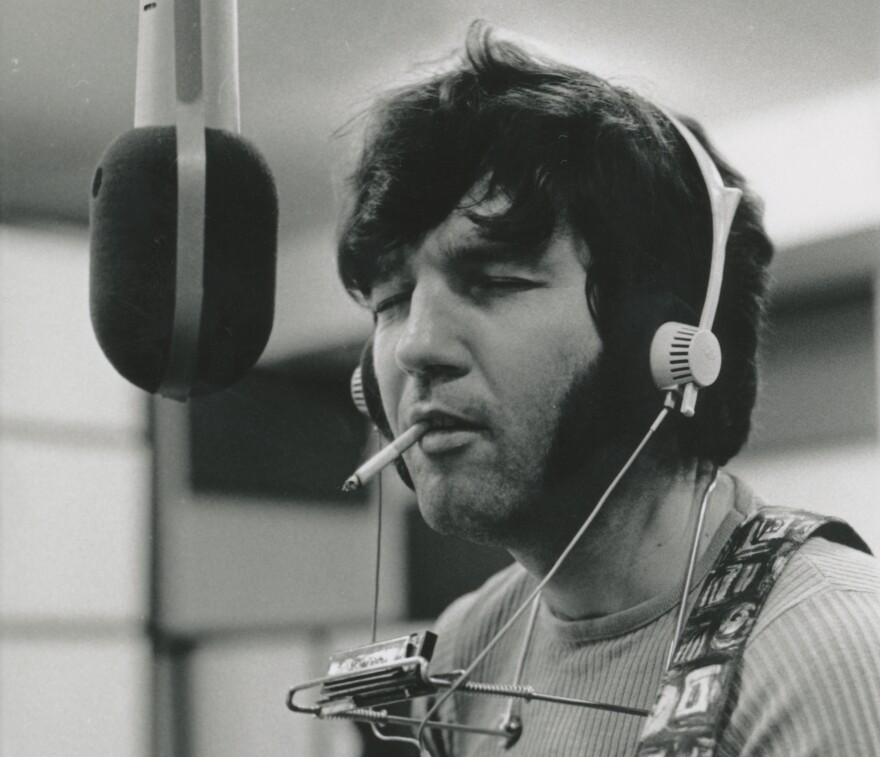When Tony Joe White died in 2018 at the age of 75, he and we were cheated out of a good deal more life and music from the understated American roots hero. Only a month earlier, he’d released Bad Mouthin’, his third new album in five years. He’d made his debut on the Grand Ole Opry. In good health, he was making plans for another tour in Europe, where he had a significant following. Then a heart attack struck out of the blue.
“Everything was trending up for him, which at 75 was really amazing,” says White’s son Jody. “So it was very shocking for everyone. And I remember coming back into the office the next week and we were just kind of looking at each other like, you know, what's next? And I was like, well, we can't just sit around. We got to keep things rolling.”
Jody shifted gears from managing an active artist who was being introduced for the first time to a lot of fans to archiving and caretaking a legacy. The first gesture of this posthumous era of Tony Joe White’s music, Smoke From The Chimney, came out in early May and it’s stirred a lot of interest. As of today, the collection has enjoyed 14 weeks on the Americana album chart reaching as high as #13, its most spun track the droning, downtempo “Boot Money.”

Smoke From The Chimney is a fascinating blend of curation, musicianship and production, steered by Dan Auerbach, the Black Keys blues rocker who’s become one of the most influential producers in modern Nashville and indie music at large. What we’re hearing on the Easy Eye release, Jody White told me in a recent interview at his Green Hills office, are demo tapes, made by Tony Joe around a decade ago (he tracked to reel-to-reel until the end), mixed with new instrumentation in a tricky process overseen by Auerbach at his Nashville studio. The volume joins the small, intriguing discography of tracks produced with left-behind vocal performances, something done for Keith Whitley, Buddy Holly, Roy Orbison, John Lennon and even Janis Joplin’s famous “Me And Bobby McGee.” (Here’s a short list.)
“We had never gone back and revisited those tapes or listened to them until after he passed away,” White says. “And then I guess it was basically six months into the transfer process when I came across those. The song ‘Smoke From The Chimney’ was the first one I sent to Dan. I just knew that was a crazy good song. And it was the type of song that he would embrace. So, you know, it didn't take long. Five minutes later, he texts me back was like, let's go, let's do this. What else do you have?”
Auerbach had long revered Tony Joe White, telling NPR last winter that he regarded his swampy southern sound as “perfect” music. “Usually when people have so much feel, they're not as good at writing,” he said. “And a lot of times people are really good at writing and don't necessarily have the greatest feel, but he just had both in spades."
Auerbach assembled sessions with a murderer’s row of great Nashville musicians to play along with the vocal/guitar demo recordings as if the late artist was in the room, putting thematic, harmonic and rhythmic sinew on the bones of the songs. The talent included veterans like drummer Gene Chrisman, bassist Dave Roe, guitarist Billy Sanford, steel player Paul Franklin and fiddler Stuart Duncan. The mix will feel familiar to fans of Auerbach’s Easy Eye sound, which honors the early 1970s as a high-water mark of instrumentation and musicianship, while lending a new Nashville touch.
That first song sent over became the first song on the album and its title cut. “Smoke From The Chimney” is a melancholy monologue from a man looking back on the love and loss in his life. “Boot Money” was a curiosity according to Jody White, a half-formed idea that his father put on the end of a demo session just to get the verse and refrain down. But Auerbach was able to build it into an infectious single. While he was inspired by real events and people of course, White could write vividly convincing stories of things that never really happened. “Over You” sounds like personal history, but Jody says the love lament came out of his dad’s imagination. So did the riveting narrative of “Bubba Jones” whose story of trying to catch the world record largemouth bass is layered with the kind of telling details (the “five-horse Mercree” boat engine that spits smoke, the “bologna and crackers” for his day) we associate with Southern novelists.
Tony Joe knew country life as well as any singer, having grown up in Oak Grove, LA in the 1950s. After playing deep south nightclubs for a while he got signed to Monument Records in 1967 and launched a recording career better appreciated by critics than the general public. But his songwriting, nested in the Music Row company of Kris Kristofferson and the outlaws, became a ticket to significant success. His song “Rainy Night In Georgia” became a chart-topper for Brook Benton. While Elvis was one of many who had hits with White’s “Polk Salad Annie.” In his 50-year career, White’s songs were recorded by Ray Charles, Willie Nelson, Etta James, Irma Thomas, Tina Turner, Dusty Springfield and Kenny Chesney.
There are hundreds more unheard songs in the boxes and bins that line shelves in Jody White’s office space, he reckons. While there are no plans for specific releases at this point, the digital transfer and cataloging process continues, foretelling a variety of possible directions for the songs. “It's a lot of time and effort to get those transferred,” he says. “But it's also just such a blessing to have that now because, you know, Tony Joe White's career is far from over.”




